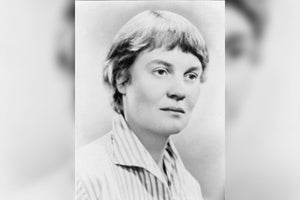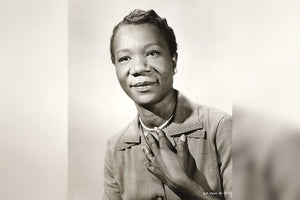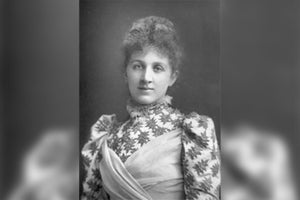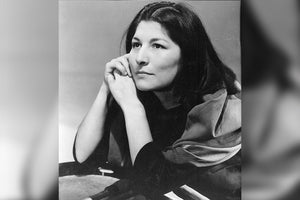Birthday – September 5, 1876
Who is Amy Beach?
Amy Beach, whose full name is Amy Marcy Cheney Beach, was known as the first female American music composer. Her work, The “Gaelic” Symphony, was recorded as the first-ever symphony composed by a woman from America.
Moreover, she was part of the first few American composers to have succeeded without training from Europe.
Five Facts about Amy Beach
- Amy was considered a child prodigy. She capable of accurately singing 40 songs when she was a year old. She also taught herself to read at three years old and started composing waltzes at five years old.
- Amy made her concert debut at the age of 16, on October 1883, and since then have performed pieces from renowned composers such as Chopin and Mendelssohn.
- She was married to a Boston surgeon named Dr. Henry Harris Aubrey Beach, who was 24 years her senior.
- She was born into a wealthy family. During her childhood, women pursuing performing arts were not approved by society. However, Amy continued to pursue learning the piano and perform in recitals and concerts.
- Amy Beach also provided advice and coaching to young composers to help them progress in their future careers in music and composition.
Inspirational Quotes from Amy Beach
“Build thee more stately mansions.”
Early Life
Amy Marcy Cheney was the daughter of Charles Abbott Cheney and Clara Imogene Marcy Cheney, born on September 5, 1867. Her mother was also good with the piano and singing, but Amy showed that she was gifted at a very young age.
She was able to sing, read, and compose at a very young age. Amy’s mother often played the piano, but she did not allow Amy to do the same. This is because she believed that indulging in her daughter’s wishes will damage their parental authority.
However, Amy had proper piano lessons at the age of six. She later performed the pieces publicly by famous composers Handel, Chopin, Beethoven, and her own compositions. Many people offered Amy to go on tours, but her parents had declined.
Amy had her first big performance on October 18, 1883. She was still 16 years old at that time, and the audience greatly praised her performance. At a rehearsal in 1885, the conductor instructed the orchestra to slow down so teenage Amy could follow. Still, she performed at a full tempo, which impressed the adults.
Marriage and Family Life
In 1885, Amy had married Dr. Henry Harris Aubrey Beach, a surgeon from Boston who was 24 years older than her. During their marriage, she had agreed never to teach the piano and limited her activity to not more than two performances in one year.
Her earnings from performing were given to charity while she focused more on composing music than playing the instrument. Her husband also disapproved of Amy receiving lessons from someone else, which made her learn the instrument independently.
During these times, only men were allowed to pursue artistic jobs and for women to stay home. Amy mentioned that she was pleased with the life she had with her husband.
Her husband passed away in June 1910, her mother in December of the same year. She did not have any children with her husband, and she spent some time in Europe after he died to focus on her music once more.
Musical Career
After her husband’s passing, Amy had found the freedom to pursue her musical career once more. She was highly praised in Europe, especially in Germany, where they performed her Gaelic symphony with high respect.
When World War I began, Amy was forced to return home, and not long after, she moved to New York City. She started to go on tours once again as a pianist and continued to compose at the same time. She would tour in the winter, and in the summer, she would spend the time composing and practice.
For the entire span of her career, she had composed an estimated 300 works, including 128 songs for poems. She was recognized in the United States as the country’s first female composer. She was told that she had good skills and techniques in composition.
Death and Legacy
Amy Beach died in New York City due to heart disease on December 27, 1944. In her death, she donated the royalties from her music career to the MacDowell Colony, a retreat house for artists.
Her name was famous in the late 1990s when feminists recognized her accomplishments in the field of music.
The recognition of her name was not only for her talent and skill as a pianist and composer but also for the fact that she was brave to pursue music as a career during a time when men dominated the field.
![]() Fast Shipping
Fast Shipping![]() Subscribe to our Newsletter
Subscribe to our Newsletter![]() 🌟 New Global Competition 🌟
🌟 New Global Competition 🌟















